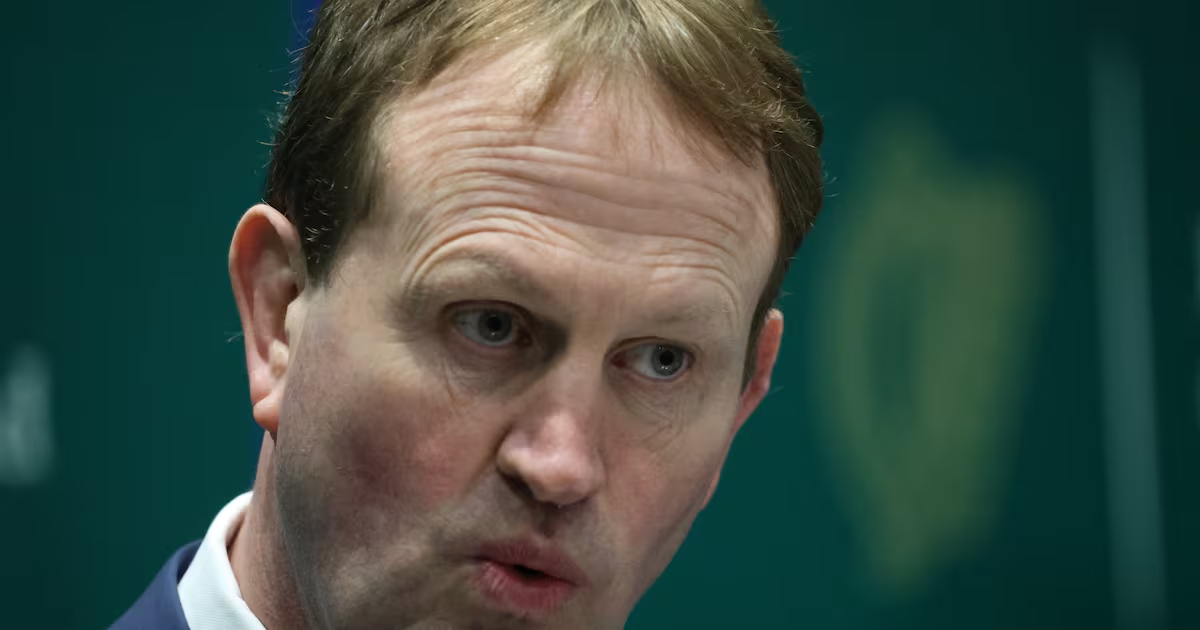State must keep trying to cut numbers applying for international protection, says Minister

Ireland has to continue to try to get down the number of people applying for international protection here, with around 13,000 applications this year, the Minister for Justice and Migration has said.
Jim O’Callaghan said he would be keeping a “close eye” on the consequences of plans announced by the British government last week to toughen the United Kingdom’s immigration policy.
“If the [UK’s] announcements lead to changes in migratory flows, that’s something I’m going to have to consider and discuss with my Government colleagues,” he told reporters at Government Buildings on Monday.
The Minister was speaking alongside European Commissioner for Internal Affairs and Migration Magnus Brunner, who visited the Citywest accommodation centre in Saggart, Co Dublin, for international protection applicants.
Mr O’Callaghan said the UK’s plans “to a large extent mirrors what’s happening” in other parts of the European Union.
He said there was “co-operation and collaboration” between the Government and its UK counterpart that was “ongoing and will continue”.
“It’s very important, from the point of view of both governments, that we have an understanding of each other’s issues,” he said.
Last week Britain said it would make refugee status temporary and speed up the deportation of those who arrive illegally.
Mr O’Callaghan said he would be bringing forward a suite of measures to Cabinet on Wednesday to tighten further the State’s migration and asylum laws.
“In terms of the proposals that I’ll be advocating, I think they will have a positive contribution in terms of Ireland’s immigration system and indeed the family reunification schemes that operate, both for international protection applicants and for those who are here on visas,” he said.
Mr O’Callaghan also said he was not bringing forward any proposals this week or in the immediate future in relation to student visas for those attending English language schools.
He said he had discussed the issue with Minister for Further and Higher Education James Lawless in terms of “trying to reduce immigration or slow down the population growth”.
“I think we hand out approximately 60,000 or so student permissions each year,” he said. “So it is an area that we are looking at, particularly in respect of English language schools. But no decisions have been made yet, but there’s ongoing engagement between myself and Minister Lawless and across Government.”
Jim O’Callaghan and European Commissioner Magnus Brunner speak to reporters. Photograph: Stephen Collins/Collins
Mr Brunner said Ireland was “very well” placed to adopt the EU’s Migration and Asylum Pact and he described the Citywest accommodation centre as professional and well organised.
EU member states are required to be ready to enforce the pact, which will increase co-operation on migration across the bloc, by June next year.
Mr Brunner said Ireland was doing “a very good job” in implementing the pact and was a “forefront runner”.
[ What is the EU Migration and Asylum Pact pact and why has it been so controversial? ]
He said the Citywest accommodation centre was “working very effectively” and was “well prepared”.
“The whole system, as we saw and the way it is organised, was just very professional and very human as well,” he said. “It’s a very good mixture, I would say, and think it’s a very good example for the rest of Europe.”
Mr Brunner also said the migration pact would result in fewer people coming to Ireland on “an illegal basis” and the numbers should “definitely go down”.
“We will have new rules such as screening of illegal arrivals, having the border procedure at the external border. The answer is a clear yes, there will be less people of course coming on an illegal basis and that’s exactly what we want to address with this new legislation,” he said.




